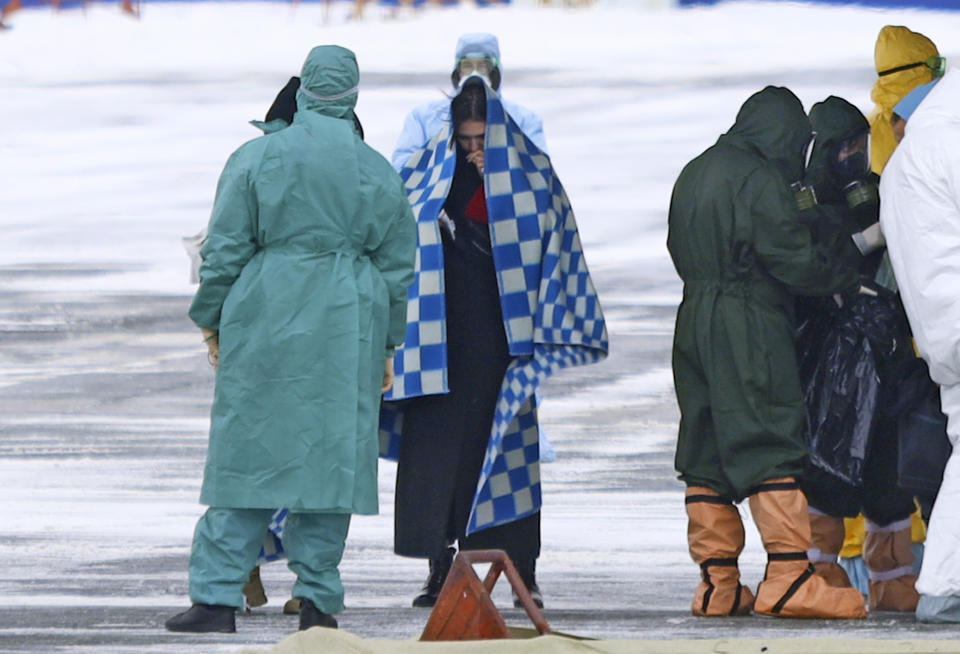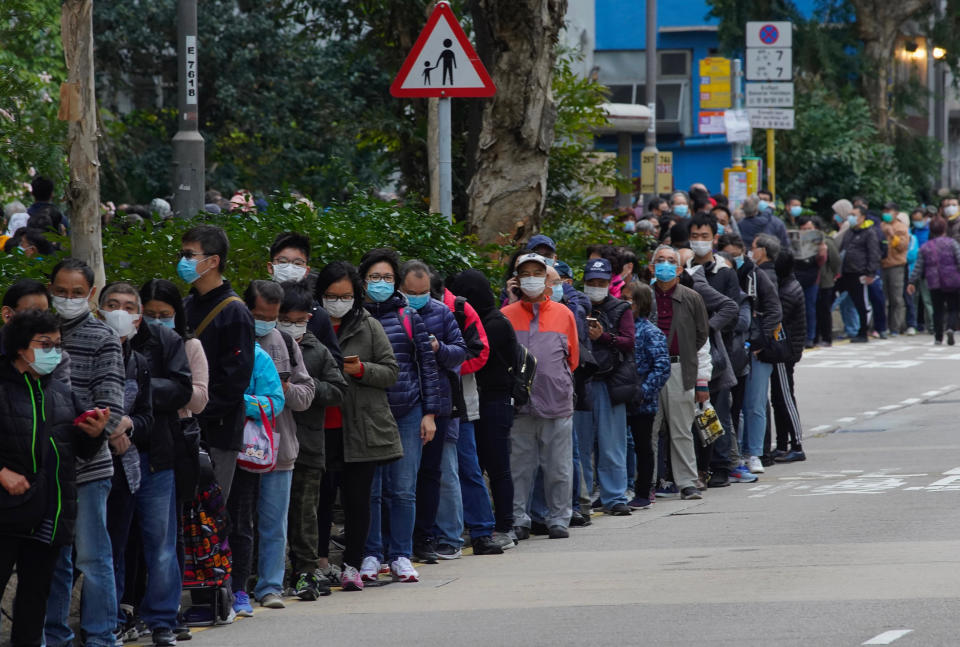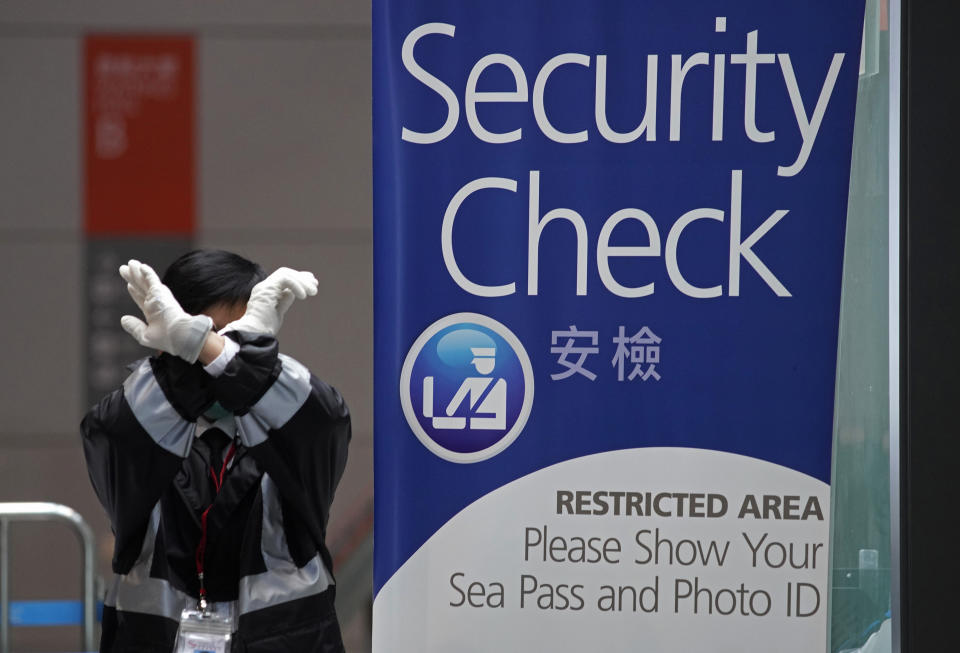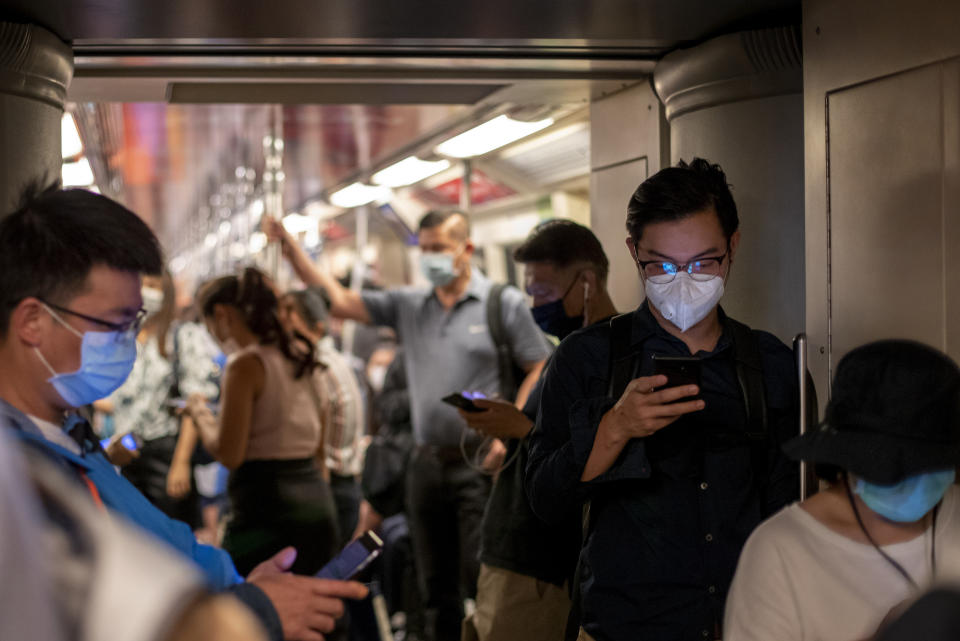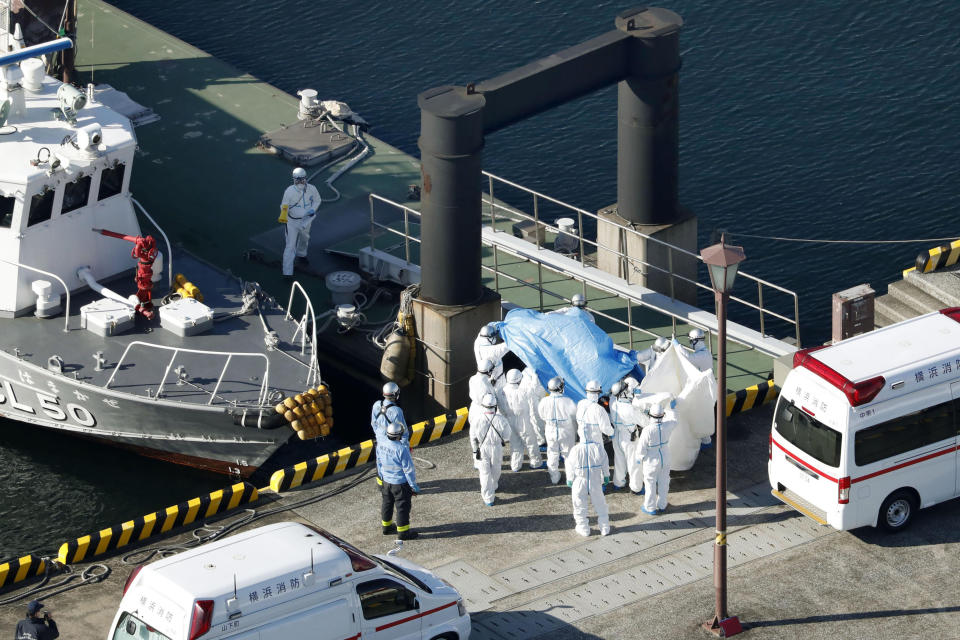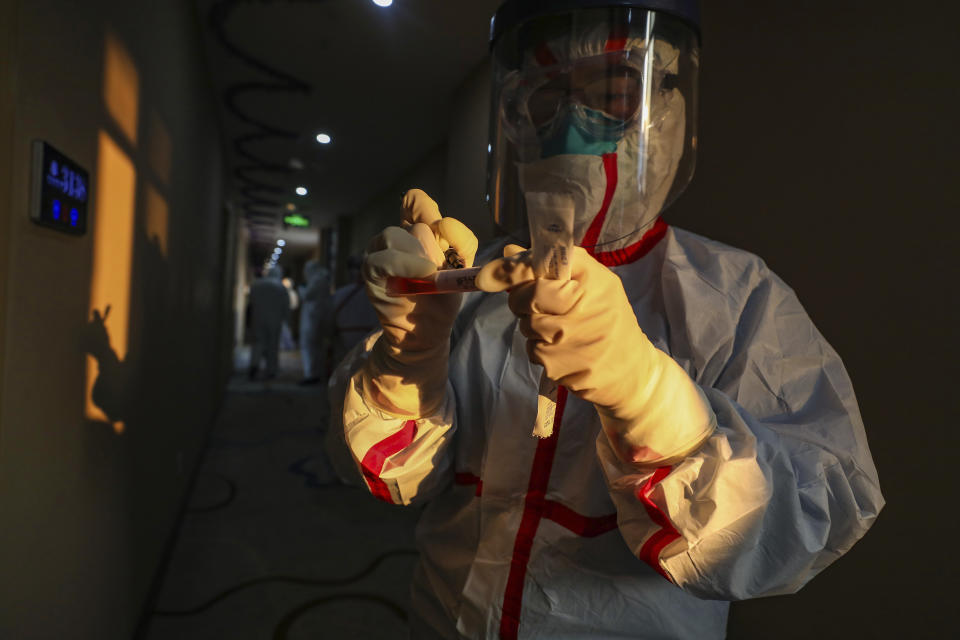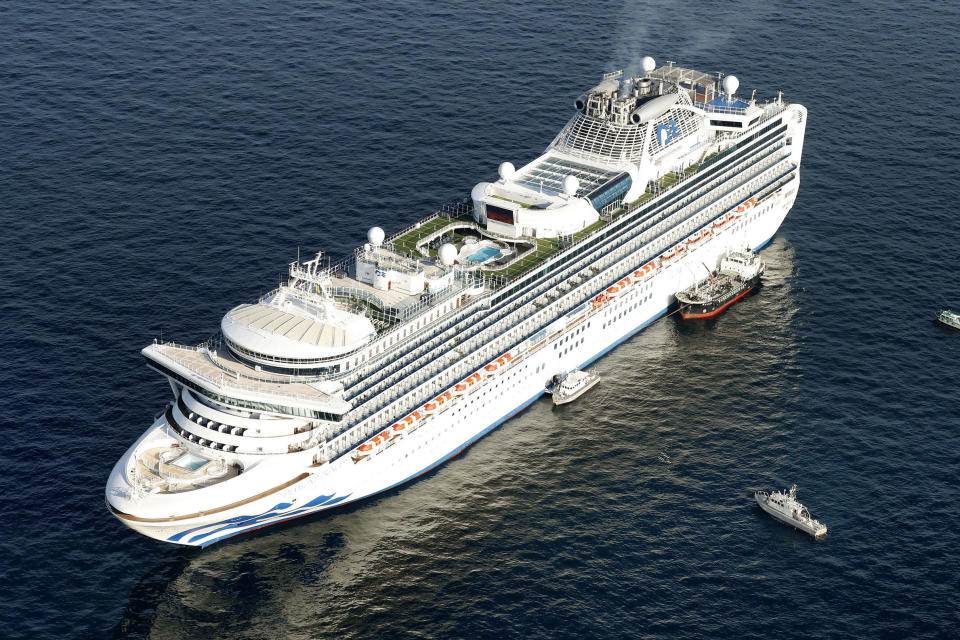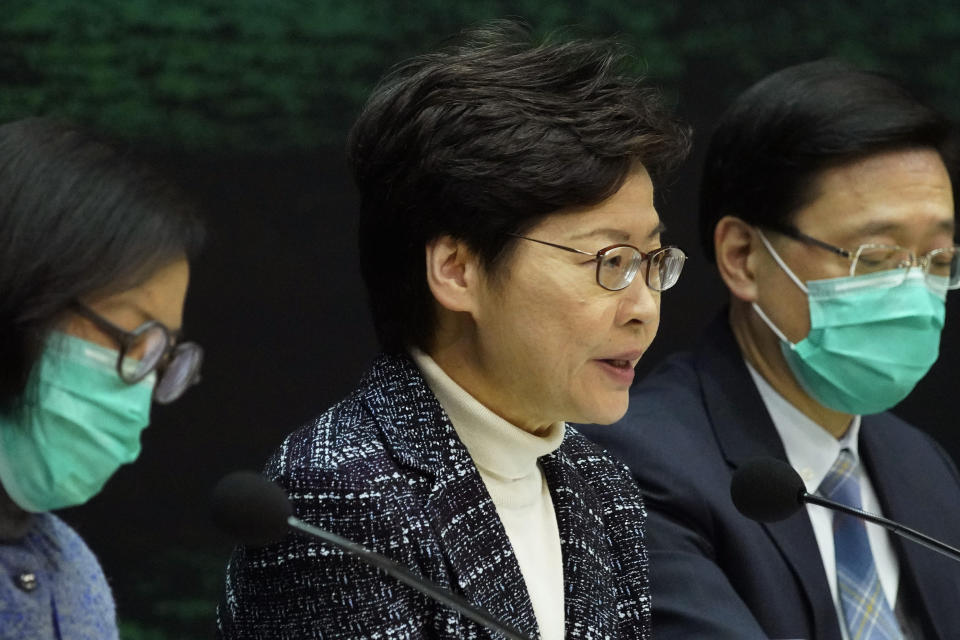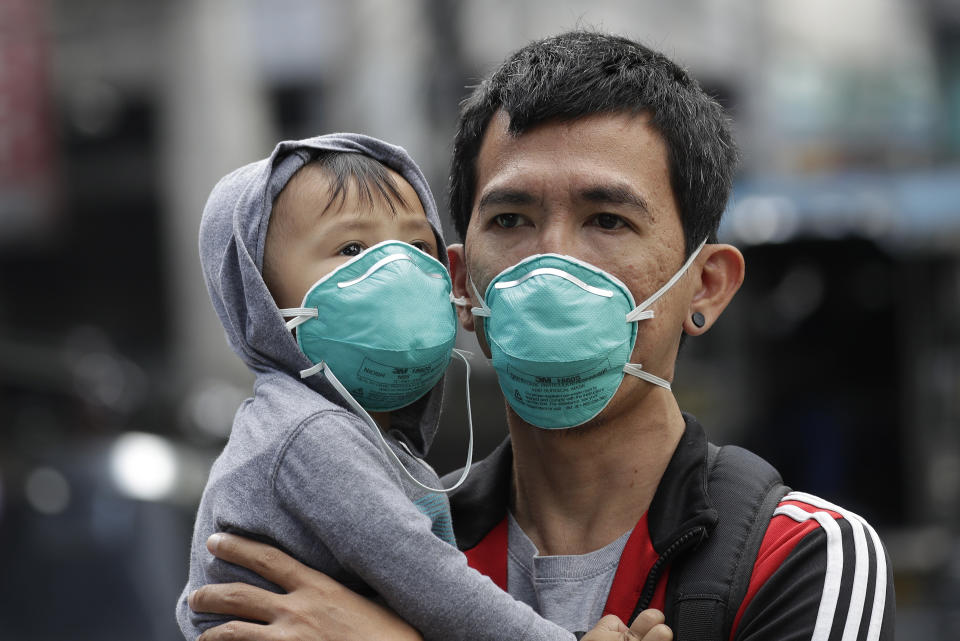TOKYO (AP) — Large white sheets covering them head-to-knee, people infected with a new virus were led by gloved and masked officials Wednesday off a Japanese cruise ship, while the rest of the 3,700 people on board faced a two-week quarantine in their cabins. In Hong Kong, more than 3,600 people on another cruise ship were to be screened after it was banned by Taiwan amid growing worry about the spread of an outbreak.
The ships are caught up in a global health emergency that seems to worsen by the day. The little-understood coronavirus has killed nearly 500 people, mostly in mainland China, but it has also spread panic and anger around the world as the cases grow.
As thousands of hospital workers in Hong Kong went on strike to demand the border with mainland China be closed completely, the city announced that all people entering from the mainland, including Hong Kong residents, must be quarantined for 14 days. Tokyo Olympics organizers, meanwhile, said they are increasingly worried about the disruption the virus is causing ahead of the games, which open in less than six months.
The director-general of the World Health Organization, Tedros Adhanom Ghebreyesus, asked for $675 million to help countries address the expected spread of the virus. He acknowledged that the sum is a lot, but told a news briefing that “it's much less than the bill we will face if we do not invest in preparedness now.”
Tedros said in the last 24 hours, the U.N. health agency has seen the biggest jump in cases since the start of the epidemic.
China has strongly defended its epidemic control measures and called on other nations not to go overboard in their responses. Countries "can assess the epidemic situation in an objective, fair, calm and rational manner, respect authoritative and professional WHO recommendations, understand and support China’s epidemic control efforts," foreign ministry spokeswoman Hua Chenying said at an online news conference on Wednesday. “Fear is worse than any virus.”
To reduce the danger of exposure for health workers, Beijing is seeking to develop a robot to administer throat tests. Separately, Shanghai announced that all schools will delay reopening until at least the end of February, rather than the middle of the month as originally planned. The exact date will depend on how the outbreak develops.
As examples of anti-Asian discrimination mount, U.N. Secretary-General Antonio Guterres appealed for “international solidarity” and support for China and other countries hurt by the virus. He urged a stop to any stigmatization of innocent people.
In the port city of Yokohama, just outside Tokyo, health workers, some in protective white jumpsuits, transferred 10 patients from the Diamond Princess cruise ship to a Japanese coast guard boat next to it. The 10, covered in sheets to protect their identities from cameras, were taken to a dock and put on ambulances bound for hospitals for treatment in isolation.
Health Minister Katsunobu Kato said all of the people on board will be quarantined on the ship for up to 14 days under Japanese law. The ship had 2,666 passengers and 1,045 crew members. Tests were pending on 273 people who had symptoms or had contact with a man who was diagnosed with the virus after leaving the ship in Hong Kong.
Paul and Jacqui Fidrmuc from the Australian city of Cairns told Australia’s Nine Network that they are grateful they have a balcony in the cabin where they're confined.
“We’re here for a long haul. I think it is going to get a little bit testing, obviously. But I don’t know. What do we do? We couldn’t jump out of the boat; that’s a bit cold,” Jacqui Fidrmuc said.
David Abel, another Australian, told the network he hadn't eaten since the previous night. "I’m a diabetic and I’m insulin dependent. If I do not receive food soon, I will be in a diabetic coma, but it’ll be too bloody late.”
The Hong Kong ship passengers were being screened after three passengers on a previous voyage were diagnosed with the virus. The territory's beleaguered leader, Carrie Lam, also announced that two terminals — including the terminal where the cruise ship is currently quarantined — will be shut down.
Also in Hong Kong, hospital workers were striking to demand the border with mainland China be shut completely to ward off the virus. Hospitals said they had to cut some services due to striking workers' absences.
Lam criticized the strike and said the government was doing all it could to limit the flow of people across the border. Almost all land and sea links have been closed, but the striking workers want the border shut completely.
“Let’s put the interests of the patients and the entire public health system above all other things," she said.
The latest mainland China figures showed an increase of 65 deaths from the previous day, all the new deaths from Wuhan. The number of new cases increased to 24,324, a rise of 3,887 from the previous day. Outside mainland China, at least 230 cases have been confirmed, including two fatalities, one in Hong Kong and another in the Philippines.
The infections on the cruise ship raised Japan's total to 34 cases. South Korea and Thailand reported recent cases among people who had not been to China, raising concerns about how easily the virus might be spreading in other places.
To treat the thousands of patients in its hard-hit central region, China built a new hospital in a matter of days and converted a gymnasium, exhibition hall and cultural center.
Patients were being moved into a 1,000-bed hospital with prefabricated wards and isolation rooms in Wuhan. A 1,500-bed hospital also specially built for virus patients is to open Thursday. The hospitals made from converted public spaces to treat patients with mild symptoms have a total of 3,400 beds, the simple cots placed in tight rows in cavernous rooms without any barriers between them.
One man, Fang Bin, said he saw wards so crowded during a visit to the city's No. 5 Hospital on Saturday that some patients were forced to sit on the ground.
With the epicenter of the outbreak, Wuhan, cut off by rail, air and road to try to contain the virus, the United States and other countries were organizing more evacuation flights for their citizens still in the central Chinese city. Two of the latest planes returned to Russia and New Zealand on Wednesday, with the returnees to be quarantined for the maximum incubation period of the virus.
Dr. David Heymann, who led the World Health Organization’s response to the SARS outbreak, said it’s too early to tell when the new coronavirus will peak, but that it appears to still be on the increase.
WHO Director-General Tedros Adhanom Ghebreyesus urged countries outside China to share more data on infections, saying detailed information has been provided in only 38% of cases. "Without better data, it’s very hard for us to assess how the outbreak is evolving or what impact it could have and to ensure we’re providing the most appropriate recommendations.”
___
Associated Press writers Edie Lederer at the United Nations, Eileen Ng in Kuala Lumpur, Malaysia, Rod McGuirk in Canberra, Australia, Alice Fung in Hong Kong, Ken Moritsugu in Beijing, Kim Tong-hyung in Seoul, South Korea and Nick Perry in Wellington, New Zealand contributed to this report.

